![]()
 Clack is a unique and original puzzle game created by Sean Hawkes from California, USA.
Clack is a unique and original puzzle game created by Sean Hawkes from California, USA.
At first glance the game appears to be a layout from a schematic diagram, which might easily scare you away if you're the non-technical type. And it will likely have you scratching your head wondering just what to do with it even if you are an electrical engineer. However, those adventurous souls that persevere, by poking around the surface to learn what is hiding underneath, will be nicely rewarded by what they find.
Stop! If you have not yet played Clack, do yourself a favor and stop right here. Go discover it for yourself first, and then come back and read the rest of the review. You'll be glad you did. =)
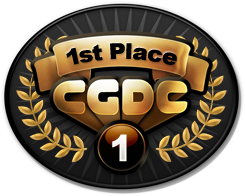 Contrary to its first impression appearance, Clack is a simple game of chain reactions, similar to a domino effect or a rudimentary Rube Goldberg machine made up of only similar parts. I'm not quite sure how to describe it best since it is a marvelously unusual design.
Contrary to its first impression appearance, Clack is a simple game of chain reactions, similar to a domino effect or a rudimentary Rube Goldberg machine made up of only similar parts. I'm not quite sure how to describe it best since it is a marvelously unusual design.
Mousing over the surface of the play field reveals small circular 'orbits' within which each of the mallets will rotate (when the game is put into motion.) Clicking on a mallet will change its length as well as its resulting orbit. Mallets that share a common axis with other mallets move as a unit, and yet their length may be changed independently.
The ultimate objective is to set each of the mallets in the correct starting position such that, when the 'start' button is pressed, all 20 targets will be visited.
To start the game in motion, press the orange triangle found in the lower left corner of the play field; the stop button is the orange square. You may only change the settings of the puzzle when the game is stopped.
Analysis: As I mentioned above, the first time I launched Clack I was deeply puzzled. There was certainly nothing obvious about it. And yet after a bit of poking and prodding I managed to make a few clacking noises, ...and a beep(!) I was instantly hooked. From there the game pulled me in and wouldn't let go until I had lit up all 20 targets.
This engaging and compelling puzzle game fits perfectly with what I had in mind for this competition. It was the kind of puzzle where you are given no instructions and have no idea what to do at first. And even after you do figure out what is required of you, there still remains the mystery of how.
Besides being truly delightful to discover its behavior and intricacies, the game is beautiful and it looks like a work of art to me. So unassuming, plain and simple on the surface, and then so intricately detailed once you examine it up close. Absolutely wonderful, from start to finish, and brilliant.
Congratulations, Sean on an excellent, creative and original puzzle game. I do hope that you plan to expand this design into a larger, multi-level game (with a level editor, too!) =D
![]() John: Clack combines several key elements of captivating casual game design: a simple, attractive layout, easy to understand gameplay, and an absolutely riveting concept. From your first glance at the game your mind is hungry to understand what's going on. Once you figure it out, it's a joy to uncover the solution, yet that's only the beginning of the fun. My personal favorite aspect of the game is the great 'clack' noise the paddles make when they collide. It's the little things that count! A big congratulations to Sean for creating a fantastic game.
John: Clack combines several key elements of captivating casual game design: a simple, attractive layout, easy to understand gameplay, and an absolutely riveting concept. From your first glance at the game your mind is hungry to understand what's going on. Once you figure it out, it's a joy to uncover the solution, yet that's only the beginning of the fun. My personal favorite aspect of the game is the great 'clack' noise the paddles make when they collide. It's the little things that count! A big congratulations to Sean for creating a fantastic game.
![]() dancemonkey: My favorite thing about Clack is how little information you're given about the puzzle itself. You're just dropped into a strange interface and must discover for yourself not just the puzzle's rules, but even the object of the puzzle itself. The design is elegant and simple, and I agree with John about the sound: the game's titular sound is essential to drawing you in and keeping you hooked.
dancemonkey: My favorite thing about Clack is how little information you're given about the puzzle itself. You're just dropped into a strange interface and must discover for yourself not just the puzzle's rules, but even the object of the puzzle itself. The design is elegant and simple, and I agree with John about the sound: the game's titular sound is essential to drawing you in and keeping you hooked.
![]() Noah: Maybe Clack should have been called Click; the split second when the initially confusing interface clicks in your mind is very satisfying. The deceptively simple concept reveals an increasingly complex and mesmerizing series of interactions through lovely animation and striking color. Congratulations Sean!
Noah: Maybe Clack should have been called Click; the split second when the initially confusing interface clicks in your mind is very satisfying. The deceptively simple concept reveals an increasingly complex and mesmerizing series of interactions through lovely animation and striking color. Congratulations Sean!



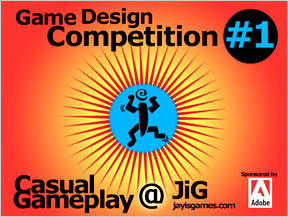
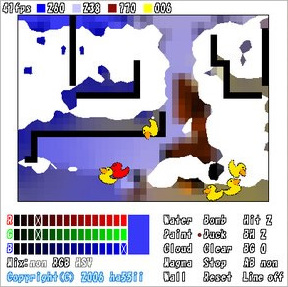
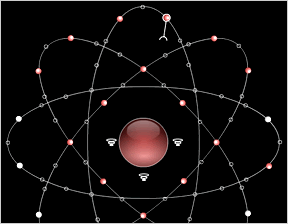
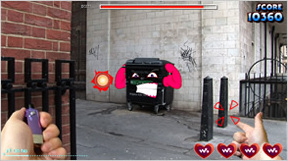
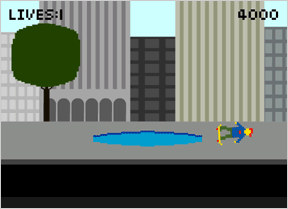
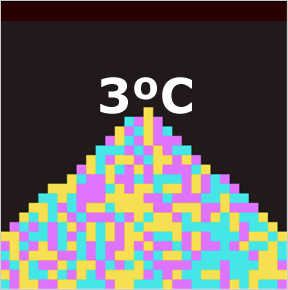
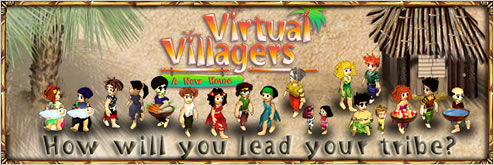
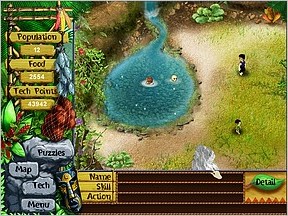
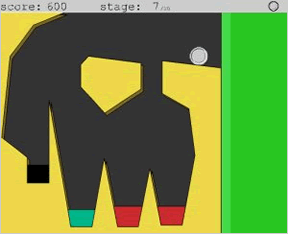
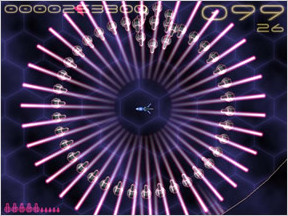
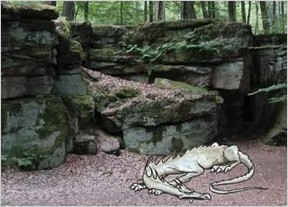
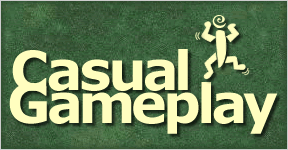 Welcome to Jayisgames' Casual Gameplay, simply the best selection of (mostly) free casual games you will find on the Web today. We have been here reviewing casual games most likely longer than any other site on the Web, since 2003. We could probably claim that we were the world's first site dedicated to reviewing casual games. But I loathe to make such a self-serving statement as that.
Welcome to Jayisgames' Casual Gameplay, simply the best selection of (mostly) free casual games you will find on the Web today. We have been here reviewing casual games most likely longer than any other site on the Web, since 2003. We could probably claim that we were the world's first site dedicated to reviewing casual games. But I loathe to make such a self-serving statement as that.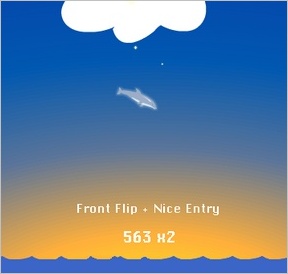
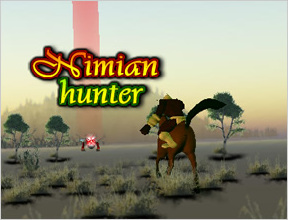
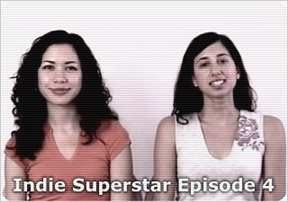
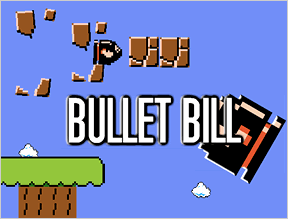

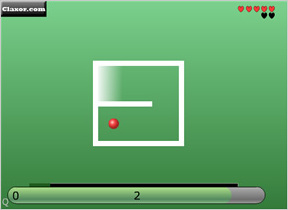
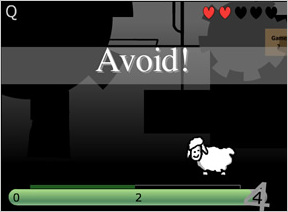
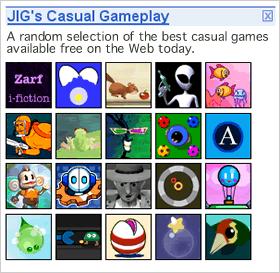
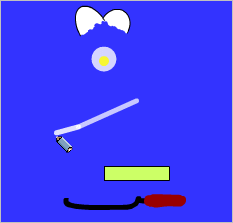

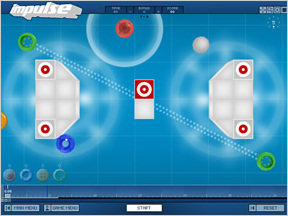
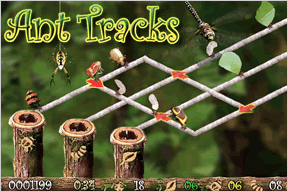
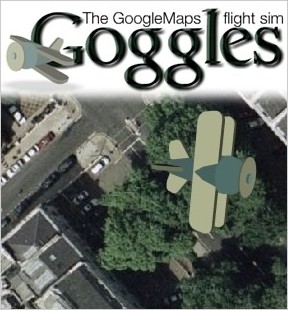

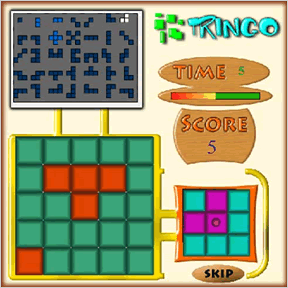
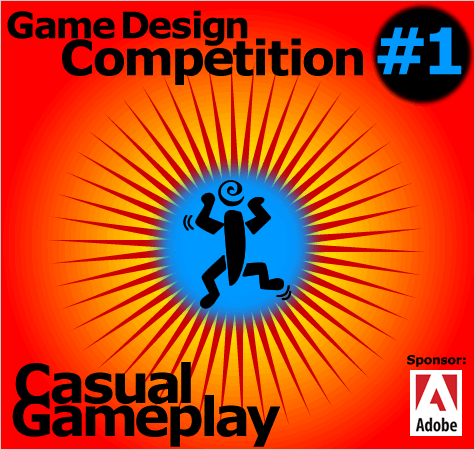


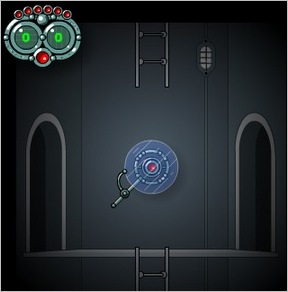
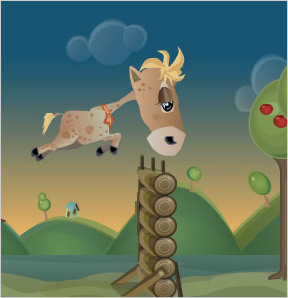
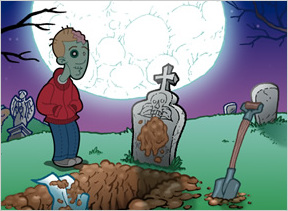
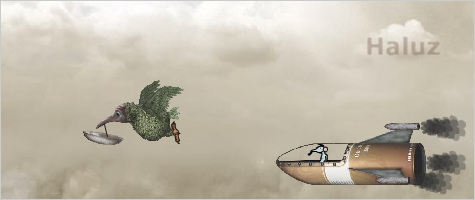
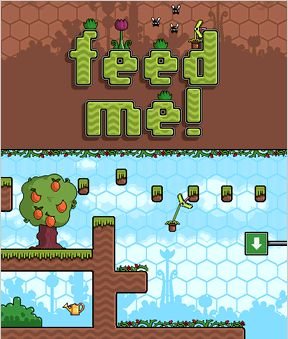
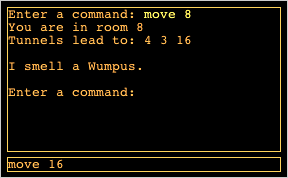


Recent Comments